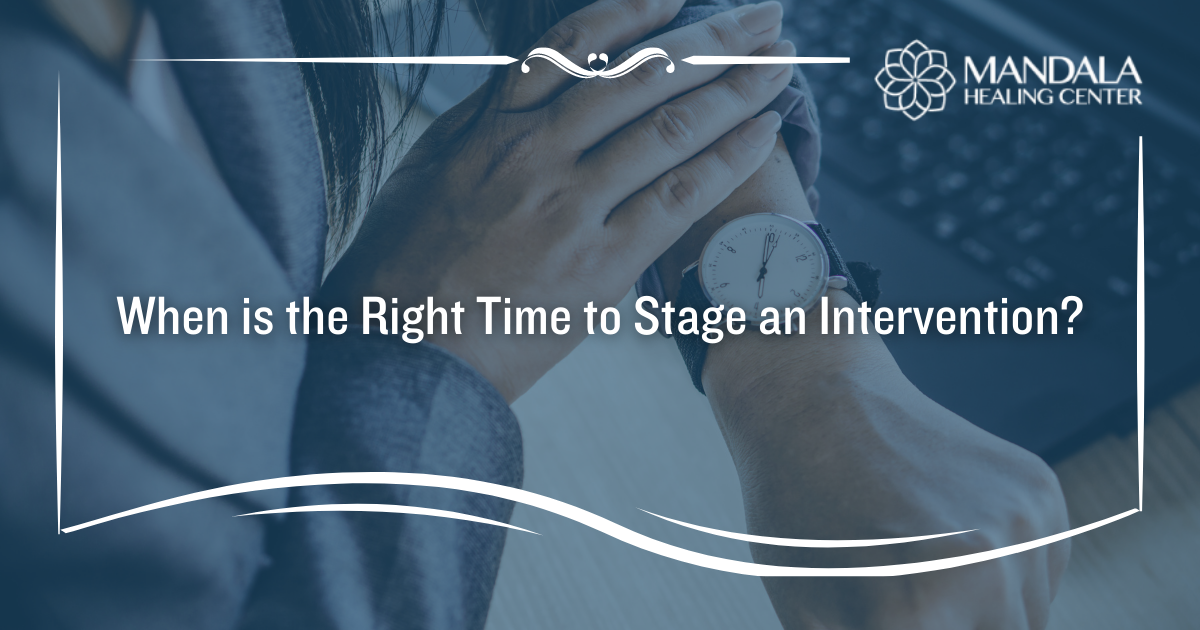Loving someone who struggles with addiction can be difficult. Watching your loved one suffer the consequences of their addiction, including damage to their mental, physical, and social health can be terrifying. You may feel angry, sad, anxious, or frustrated.
Many people want to help their loved ones, but don’t know how. Talking about addiction can feel overwhelming. It might feel like a challenge to offer them the treatment they need without shaming them or pushing them away. However, the consequences of untreated addiction can be long-lasting and severe. People must get addiction treatment to avoid the worst of these consequences.
Many families and friends of people with addiction choose to stage an intervention. An intervention is a planned event designed to encourage a person to go into addiction treatment. Friends and family members gather around the person and tell them about how the person’s addiction has impacted their lives. The goal is to encourage the person to seek treatment, but it also allows the whole group to get on the same page about how they will act in the future. They all agree to stop enabling behaviors and offer support to each other as they move forward. But, how do you know when is the best time for an intervention?
If you are concerned about a loved one or friend who is struggling with addiction, you might wonder if it is time for an intervention. By learning more about helping someone with addiction, you can make the best decision about when the right time for an intervention will be.
When is the Right Time For an Intervention?
The earlier a person starts addiction treatment, the better. Addiction is a serious condition that can quickly escalate into a crisis, and the consequences to their mental and physical health can be serious. It can be hard to convince someone to get treatment if they are in denial about their addiction.
Depending on how close you are to the person, it may take you some time to realize that there is a problem. Some signs of addiction include:
- Lying or secretive behavior
- Increasing isolation
- Falling behind at work or school
- Failing to handle responsibilities at home
- Changes in mood, sleep, or appetite
- Drastic changes in physical appearance
- Financial or legal difficulties
Seeing any of these symptoms might indicate that your loved one is struggling with addiction and that they may have been dealing with it for some time. It is never too early to hold an intervention. It’s much worse to wait until it’s too late.
Five Signs It’s Time For an Intervention
There are some clear signs that your loved one’s addiction has reached a critical stage and requires intervention and treatment. Here are 5 telltale signs it is time for an intervention.
- Their destructive behaviors are posing risks to their health and safety: This might include driving while under the influence, increasing the amount of the substance they are using, or engaging in risky behavior to get drugs or alcohol.
- Lying: Someone who used to be trustworthy begins to lie, hide, or cover up their substance abuse.
- Their health is suffering: They are sick, injured, or have health problems that are associated with drug or alcohol abuse.
- They refuse treatment: Although they are living with serious consequences of their addiction, they are unwilling to talk to a medical professional or engage in addiction treatment.
- Their friends and family are at their limit: Friends and family are burnt out, frustrated, or losing hope. They can not offer financial or emotional support any longer.
Addiction negatively impacts both the person with addiction and their loved ones. The best time for an intervention is when the person with the addiction or their loved ones can no longer live with the consequences of the person’s substance abuse.
How to Prepare For an Intervention
Holding an intervention can be stressful. With some education and preparation, you can ensure that it goes as smoothly as possible. If you are unsure about how to have an intervention or how to make it an effective one, consider hiring a professional interventionist to help you and the others involved.
Who, what, and where: Decide who will be involved. Generally, this includes close friends and family members who are directly impacted by the person’s addiction. It is also important to choose a place and time that allow you privacy. Decide who will speak during the intervention and in what order.
Education: As a group, learn about addiction and enabling behaviors. Do some research about what local treatment programs are available and choose an appropriate option to offer to your loved one.
Intervention: On the day of the intervention, try to stay calm and focused. The group’s goal should be to convey love, care, and concern and avoid shame or judgment.
After the intervention, follow through on your offer to help your loved one get addiction treatment. Or, if they refuse your offer, support each other as you stop your enabling behaviors and decide how you will move forward.
Find Help For Yourself or a Loved One Today
Whether it is time for an intervention or not, if you or someone you love struggles with addiction, reach out to the staff at the Mandala Healing Center. We offer addiction treatment and support for people in every stage of addiction and recovery.
Do not wait another day for life-changing treatment. Call today to speak with an admissions counselor.












